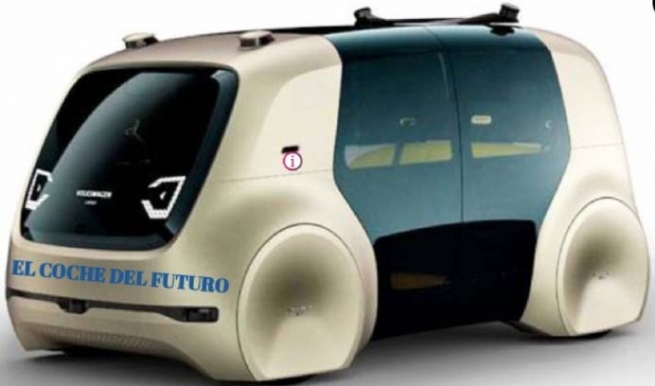SPAIN: Salesian Institute in Ciudad Real wins innovation award for its “The car of the future” project

(MissionNewswire) The Salesian Institute in Ciudad Real, a city in central Spain and south of Madrid, was recently awarded the 2019 Educational Innovation Award in the Best Innovative Experience-Nursery and Primary School category at Simo Educación, an international exhibition of educational technology and innovation. The Salesian Institute was chosen for this honor for its “The car of the future” project.
This project was launched by primary school teacher Carlos García Turrillo, who teaches 6th grade. “The car of the future” project engaged students in cooperative learning and gamification processes while teaching the fundamentals of electronics and robotics.
The students’ objective was to construct a scale-model car. This enabled students to learn how to work in groups and use renewable energies. The project was developed in three phases and students had to use learned skills in geometry, natural sciences, languages and robotics in order to complete the project successfully.
The top 10 schools that were awarded honors at Simo Educación will go on to compete against each other for the InnoTechEdu Award and the Award for Best Innovative Experience in Teaching, which is the absolute top prize in the competition. Both prizes will be announced Nov. 6 in Madrid during the InnoTechEdu Party & Prizes celebration. The event has the theme “We love our teachers!”
“Salesian teachers work to provide students with the best learning environment and utilize innovative and effective methods of teaching,” says Father Mark Hyde, director of Salesian Missions, the U.S. development arm of the Salesians of Don Bosco. “This competition aims to be a stimulus and a point of transformation for those who participate. For students and teachers, it is an incentive for innovative skills, to become aware of the importance of research and explore the possibilities of contributing to the improvement of society.”
Salesian missionaries arrived in Ciudad Real more than 50 years ago. In 1962, missionaries started the St. Tomás de Villanueva school and reception center focused on poor and orphaned youth. Over time, Salesian missionaries expanded their educational and social programs by adding a primary school and vocational training courses as well as workshops in mechanics, carpentry and printing.
Salesian centers in Spain operate close to 50 vocational and technical training centers that employ 1,300 teachers and offer 17,000 students a chance to gain an education. All Salesian centers have the support of companies from a variety of business sectors to give students real-world work experience.
Close to 37 percent of young Spanish workers under the age of 25 are unemployed and a growing number of them can’t afford to buy enough food to live. Poor youth with few employable skills struggle the most to find and retain stable employment. Women in Spain face inequality in the workforce. They earn up to 14 percent less than men and represent only 34.5 percent of those listed as the highest earners in Spain.
Salesian missionaries have been working for many years to provide educational and workforce development opportunities for poor youth and women in Spain through residential and technical and vocational training programs.
###
Sources:
ANS Photo (usage permissions and guidelines must be requested from ANS)
ANS – Spain – “Car of the future” project awarded at “Simo Educación 2019” fair
Salesian Missions – Spain
World Bank – Spain





